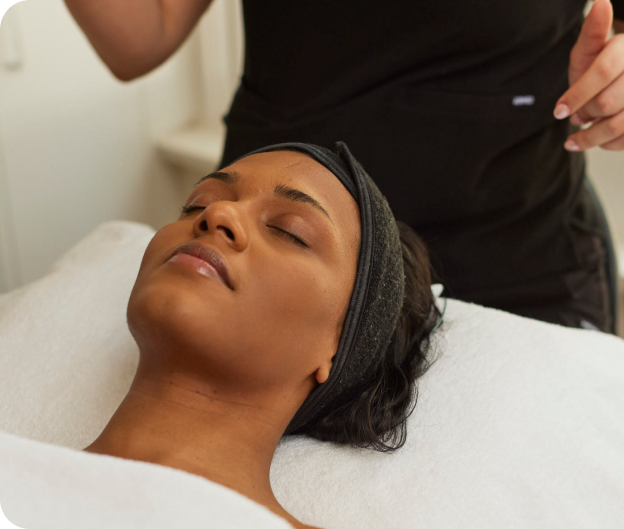
Dr Alice Rudd completing a skin check
Do you have loads of spots on your skin and no idea where to begin? Your skin is your largest organ, so it’s crucial to get to know it well. At Skindepth Dermatology, we believe in educating and empowering our patients to take charge of their skin health—because early detection of skin cancer can save lives.
Every year, over 2,000 Australians die from skin cancer, but early identification dramatically lowers that risk. Shockingly, only 50% of Australians have examined their skin in the last 12 months. Meanwhile, the average Aussie spends around 20 hours a week in the sun during summer. That’s a lot of UV exposure!
So, it’s time to get familiar with your skin—every part of it. And don’t skip the hidden areas. Skin cancers can develop in unexpected places like the underarms, groin, genitals, and soles of the feet. Use a hand mirror and check thoroughly—or better yet, book a full skin check at your local skin clinic in Melbourne, such as Skindepth in St Kilda East.
Know Your ABCDEs
At Skindepth, we recommend using the ABCDE method for spotting signs of potential melanoma:
-
Asymmetry – Benign moles are typically symmetrical. If you draw a line through the middle, both sides should look the same. Melanomas often appear asymmetrical.
-
Border – Harmless moles have smooth, even borders. Melanomas usually have irregular or ragged edges.
-
Colour – A uniform colour is typical of benign moles. Look out for moles with multiple or mottled colours like brown, black, red, or white.
-
Diameter – Most melanomas are larger than 6mm when diagnosed, but smaller lesions can still be dangerous. Don’t ignore them.
- Evolution – Any change in a mole’s size, shape, colour, or behaviour (itching, bleeding) over time is a red flag, even if it doesn’t meet all the other ABCD criteria.
When to See a Dermatologist
If you notice:
-
A new mole
-
A mole that looks different from the rest
-
A mole that itches, bleeds, or changes in any way
…then it's time to book a professional skin check with a trusted dermatologist like Dr Alice Rudd at Skindepth Dermatology. Early detection gives the best chance of successful treatment.
Most skin cancers are spotted by patients themselves or a loved one—so check your family’s skin too, not just your own.
